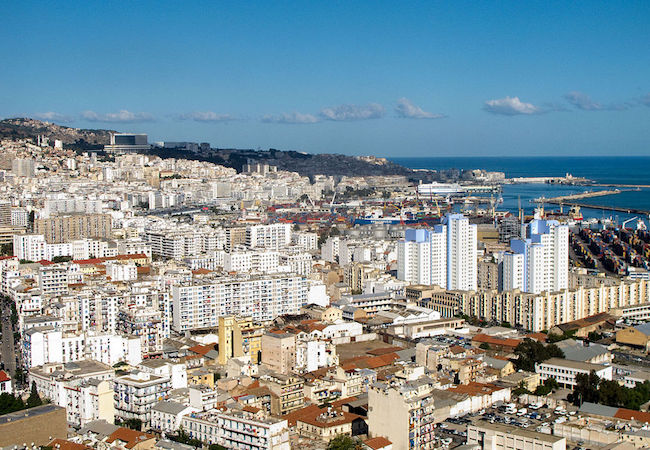Algeria at a critical turning point
Algeria’s new president has his work cut out for him if he is to convince a wary electorate that he is a champion of liberalization and freedom. The international community would do well to seize the moment and pressure Mr. Tebboune to take practical steps for the advancement of human rights and freedom of conscience in his country.

By Jay Church
Algeria has the opportunity to take significant strides towards a freer and more open society as it begins its journey out from the twenty-year reign of President Abdelaziz Bouteflika. Weekly protests starting in February 2019 called for widespread institutional reform and led to Mr. Bouteflika’s resignation on April 2nd, 2019.
The protests continued into the early months of 2020 amid public concern that Abdelmadjid Tebboune, the new president, is unwilling to take meaningful action to rectify the injustices perpetrated by Mr. Bouteflika. Mr. Tebboune had previously served as Prime Minister under Mr. Bouteflika.
Mr. Tebboune’s most significant opportunity to advance the cause of freedom and openness in Algeria may lie in a constitutional referendum, according to international observers. Work on the referendum began in January 2020 and a list of proposed amendments was presented to Mr. Tebboune on March 24th. He promises that the amendments will be “profound,” but missed a self-imposed deadline to make the proposals public—a delay that his administration attributes to the fallout from COVID-19.
The next step is for the amendments to be reviewed by a broad group of stakeholders in the government and civil society. However, recent reports suggest that religious minority groups have been excluded from this discussion.
As tempting as it is to believe that the promised constitutional amendments will create a more equitable system, human rights observers and native Algerians alike would do well to look to the Constitution as it stands today, sans referendum.
Ratified in 2016, the document that Mr. Tebboune is currently reviewing already lays much of the framework for a liberal society. Article 32 prohibits discrimination on the basis of “birth, race, gender, opinion or any other personal or social condition.” Article 35 mentions the political rights of women. Article 42 provides for freedom of opinion, conscience, and worship. Mere constitutional acknowledgment of the rights of Algerians is not what Algeria is lacking.
While the articles referenced above could perhaps be phrased more strongly, a more fundamental problem remains regardless of how these articles are phrased—there seems to be little political will to enforce even the most fundamental freedoms already guaranteed by the Constitution. A quick look at the way the government has failed to uphold just Article 42 in the last several years is a good illustration of this fact.
While Algeria is an Islamic Republic, Article 42 of its Constitution guarantees the right of every Algerian to worship however their conscience dictates. However, the experience of l’Eglise Protestante d’Algérie (EPA), a non-Muslim religious community, casts doubt on whether this guarantee is anything more than an empty promise to be discarded when it becomes politically inconvenient. The EPA has been approved to conduct non-Muslim worship since 1974, but the government forcibly closed one of its local churches in November 2017. That location was eventually reopened, but since that time seventeen other EPA-affiliated churches have been similarly shut down and only four reopened.
In 2006, the Algerian Parliament passed a law establishing the National Commission for non-Muslim Worship. This entity, tasked with providing legal recognition to non-Muslim places of worship, has yet to meet much less approve a single application for recognition. Dozens of EPA-affiliated churches have been closed since 2006 as a result of this failure, including instances in which peaceful worshippers were beaten.
Mr. Tebboune has to assure a wary public that he is serious about real, substantive change. COVID-19 may have halted the weekly protests for now, but this is nothing more than a temporary respite for a regime still viewed with much suspicion by a protest movement that has managed to regroup online. In particular, the protestors have condemned the government’s ineffective response to the pandemic which has included sporadic curfews, closed borders, and assistance from China.
Algeria has the highest rate of COVID-related deaths per capita in the Arab world, according to a recent report by the Washington Institute.
The United States Commission on International Religious Freedom (USCIRF) included Algeria in its 2020 annual report of the world’s worst religious freedom violators. This is the first time in USCIRF’s twenty-year history that Algeria has been included—an important development at a sensitive time for the Algerian church. As one of the leading global voices on the topic of international religious freedom, USCIRF’s report sends a strong message to Mr. Tebboune that the international community is watching his actions.
Algeria has traditionally been hesitant to engage with Western powers, but the United States and a few other countries, including France, do send limited assistance to the country for specific purposes such as anti-terrorism capacity building. The United States and others should seize the opportunity presented by Mr. Tebboune’s need to show the electorate that he is serious about liberalization to push for real change in the area of human rights, including religious freedom.
A freer and more open society starts with freedom of conscience. Mr. Tebboune must take practical steps—such as allowing l’Eglise Protestante d’Algérie to worship freely—if he is to convince the Algerian people that his administration will be more than a continuation of the old order.
Jay Church is a policy analyst and researcher at a D.C.-based international human rights nonprofit.




